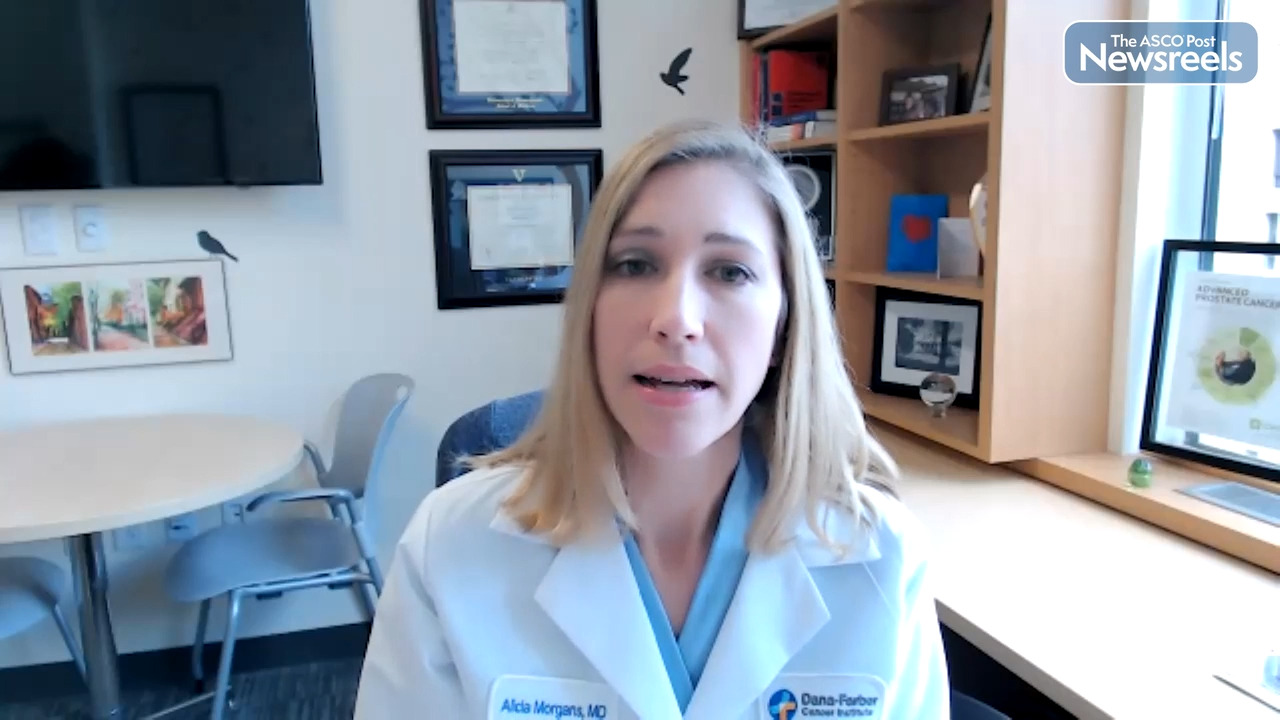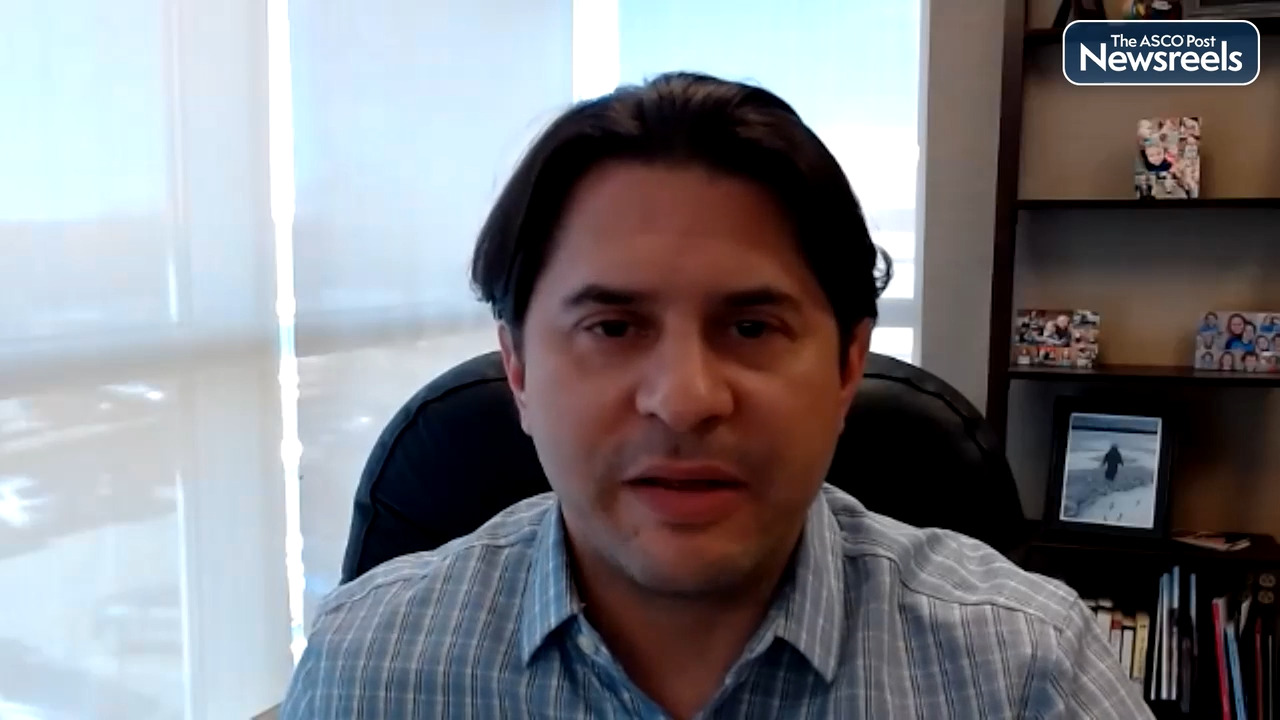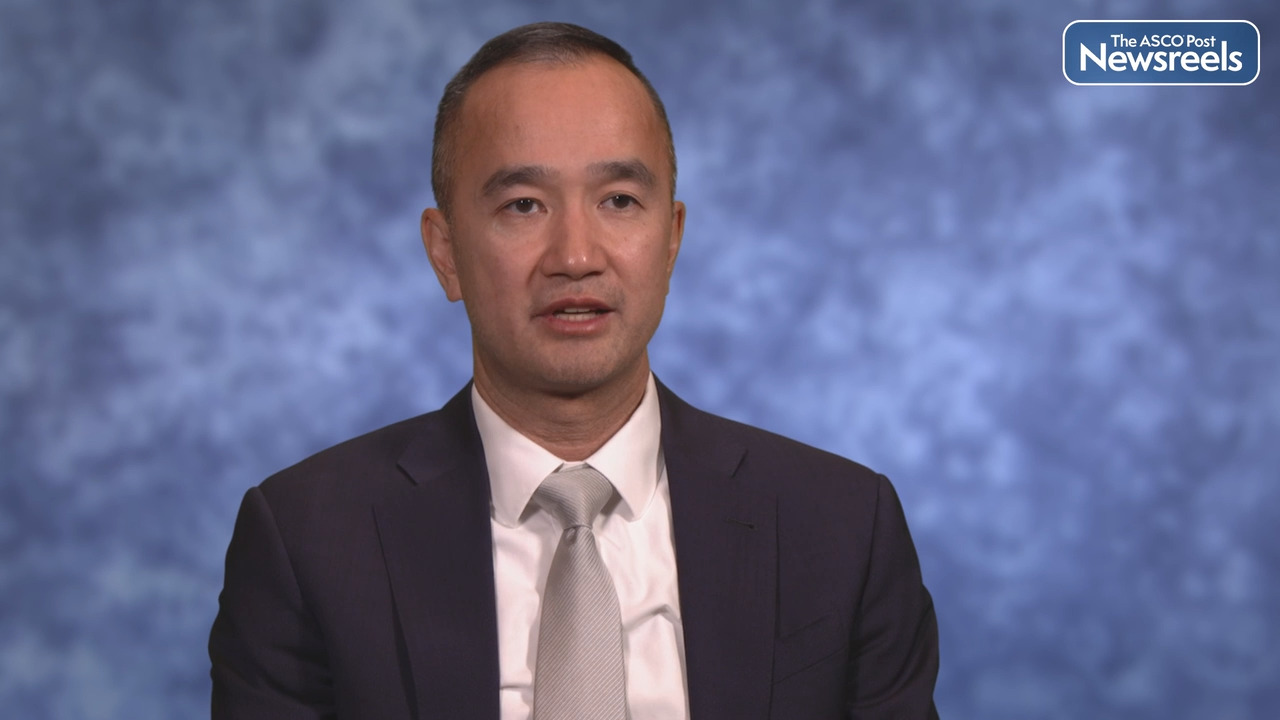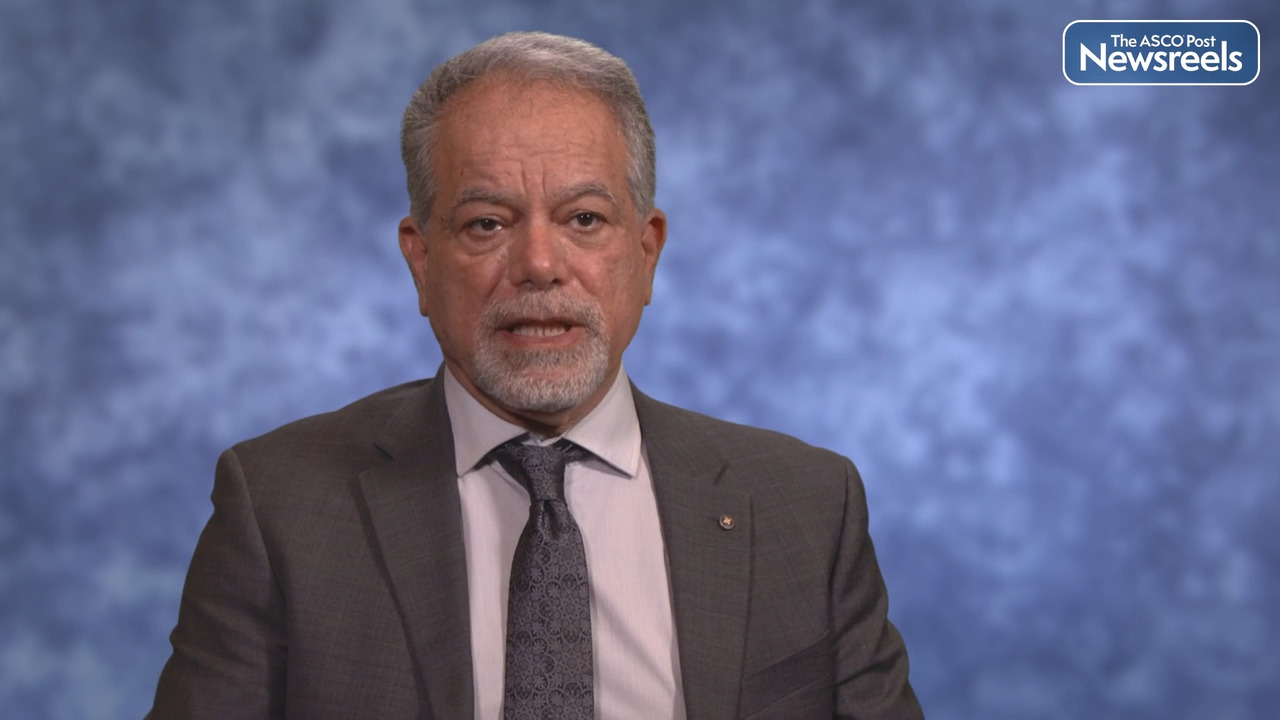Axel S. Merseburger, MD, on Prostate Cancer: New Data From the PRESIDE Trial on Enzalutamide, Docetaxel, and Prednisolone
2022 ASCO Genitourinary Cancers Symposium
Axel S. Merseburger, MD, of the University Hospital Schleswig-Holstein, discusses results from a phase IIIb study of chemotherapy-naive patients with metastatic castration-resistant prostate cancer who have been treated with docetaxel plus prednisolone and experienced disease progression on enzalutamide. The data suggest that continued enzalutamide plus docetaxel improved progression-free survival compared with placebo plus docetaxel (Abstract 15).
The ASCO Post Staff
Alicia K. Morgans, MD, MPH, of Dana-Farber Cancer Institute, discusses findings from the largest digital survey conducted in patients with prostate cancer, allowing identification of unmet needs in the patient journey. Preliminary data suggest that lower rates of screening may correlate with higher rates of symptoms at diagnosis and potentially later-stage diagnosis.
The ASCO Post Staff
Matthew R. Zibelman, MD, of Fox Chase Cancer Center, discusses phase I/II results from a study of treatment-naive patients with advanced renal cell carcinoma who received a combination of the immunotherapy (IO) nivolumab and the tyrosine kinase inhibitor (TKI) axitinib. The findings suggest that the efficacy of this regimen is comparable to that of currently available IO/TKI combinations for this population and has a similar safety profile (Abstract 291).
The ASCO Post Staff
Kim Nguyen Chi, MD, of the University of British Columbia, BC Cancer-Vancouver Center, discusses first phase III results from the MAGNITUDE study, which explored the use of the PARP inhibitor niraparib with abiraterone acetate and prednisone as first-line therapy in patients with metastatic castration-resistant prostate cancer with and without homologous recombination repair gene alterations (Abstract 12).
The ASCO Post Staff
Xin Gao, MD, of Massachusetts General Hospital, discusses phase I/II findings on bavdegalutamide, an androgen receptor protein degrader, which showed clinical activity in heavily pretreated patients with metastatic castration-resistant prostate cancer who received one to two prior novel hormonal agents.
The ASCO Post Staff
Fred Saad, MD, of the University of Montreal Health Centre, discusses phase III findings demonstrating for the first time the clinical benefits of olaparib plus abiraterone in patients with metastatic castration-resistant prostate cancer, irrespective of their homologous recombination repair mutation status. This regimen led to significantly longer radiographic progression-free survival than placebo plus abiraterone (Abstract 11).





